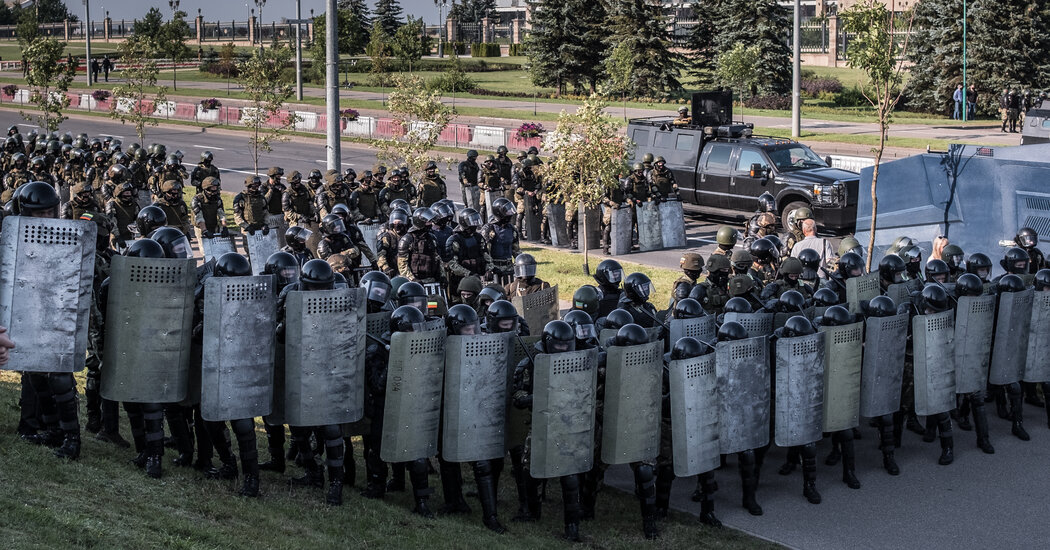As protests continue in Belarus following the August election, I approached Dimitar Dermendzhiev, Conflict Resolution and Peacebuilding Consultant. He has experience managing conflict prevention and mediation projects supporting European peace-making in a number of counties including Belarus and has worked with a variety of Belarusian academics, experts and NGO’s.
Dermendzhiev shares his impressions of Minsk, explains the geopolitical landscape of Belarus and presents his analysis — as well as insights given by Belarusian experts — of what could come next for Belarus.
The Overconfidence of Lukashenko
The Organization for Security and Cooperation (OSCE) and the international community have been saying that the Belarusian elections have not been free and fair for a long time, Dermendzhiev says. At this year’s election, however, President Lukashenko claimed yet another historical victory — but this time with over 80% of the vote. This was despite the support which Svetlana Tikhanovskaya and other opposition figures generated.
The blatancy of the rigging in this election was likely down to Lukashenko’s overconfidence and belief that Belarus society was not ready to vote for a woman — underestimating the support for female opposition leader Svetlana Tikhanovskaya.
Women, in fact, have taken a central role in these protests. Female figures such as exiled Tikhanovskaya and Maria Kolesnikova — who reached headlines after ripping up her own passport to avoid the forcible expulsion to Ukraine — are being backed by thousands of women protesting for Lukashenko’s resignation.
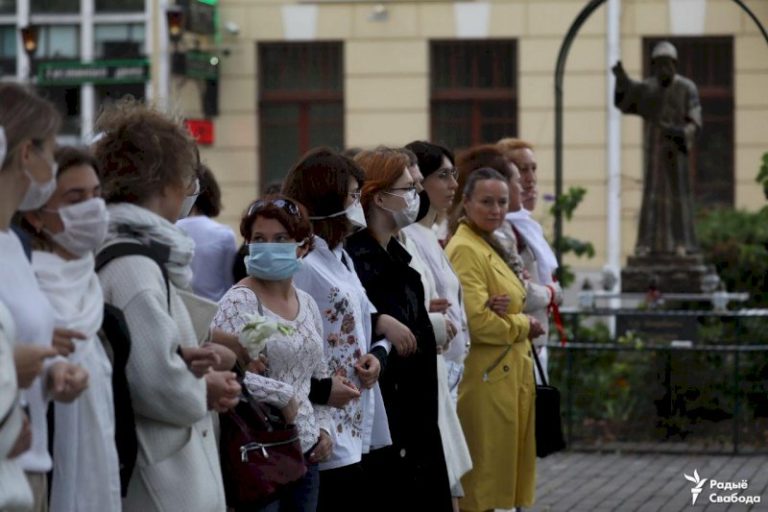
Dermendzhiev finds this interesting, as he tells me that a big conversation happening in international relations is the role of women — how to make transition processes more inclusive to women and to empower women, democracy actors.
For example, one of the key themes of the European Endowment for Democracy (EED) is women’s civic and political participation.
That we are seeing women as actors of change in Belarus is truly inspiring, especially in the context of such male-dominated politics
Yet in Belarus, women have become the driving force of the protests, says Dermendzhiev. That we are seeing women as actors of change in Belarus is truly inspiring, especially in the context of such male-dominated politics.
Belarusians for a Third Way
Dermendzhiev describes the people he came into contact with during his time in Minsk as “eager to explore and unlock the potential of their country.” This may go some way to explain why the Belarusians are now protesting with such determination against the results of the August election.
According to Dermendzhiev, Minsk viewed Belarus as a neutral country — one that is willing to be an island for stability and mediation. Dialogues for the Nagorno-Karabakh conflict have been held under the auspices of the Minsk Group of the OSCE in Europe, and this year the city hosted the trilateral contact group for Ukraine.
Those in Minsk also pointed to the positive developments in business — the World Bank ranks it 37th out of 190 economies in the ease of doing business. There had also been some success in IT start-ups and in the diversification of its export partners. The China-Belarus Industrial Park “Great Stone” is a prime example. Belarus and Russia have also maintained what Dermendzhiev calls a “unique relationship” — formally known as the Belarus-Russian Union State.
It is from these observations that Dermendzhiev concludes his impression of Belarus as a country striving for a third way — “striving for a democratic change outside the traditional paradigm of East-West zero-sum game inherent to the post-Soviet space.”
Rather than holding more typical binary views toward Russia, Dermendzhiev sees Belarus as a country open to both Russia and the rest of the world, which he says is reflected in the demands of the protestors now.

Whilst the protestors’ demands have focused on fair elections and the resignation of Lukashenko — with attention raised in regards to human rights issues — they haven’t been asking to enter the European Union, unlike Ukrainian protestors during their Revolution of Honour.
Belarus and Russia’s Unique Relationship
Of course, trying to balance this third way has its challenges, primarily the close relationship with Russia. The military alliances and economic dependence on Russia place some limitations to Belarus being an independent, sovereign state.
Following the dismantling of the Soviet Union, Russia sought to deepen its relations with Belarus. Both countries are in the Eurasian Economic Union (EAEU), the Collective Security Treaty Organisation (CSTO) and the Commonwealth of Independent States, and Russia continues to seek ways to further increase its influence in Belarus, Dermendzhiev explains.
This has at times been the cause of clashes between Putin and Lukashenko, he says, as the Belarusian government has changed its attitude to its country’s identity which had previously embraced a Russo-centric ideology. Since the 2000s, the Lukashenko government moved to replace this ideology with a Belarus state ideology. This shift in attitude, according to Vadzim Smok — a Minsk-based journalist — was triggered by the Ukrainian crisis, “when Russia used ethnic affiliation and common language as a justification for invading Ukrainian territory.”
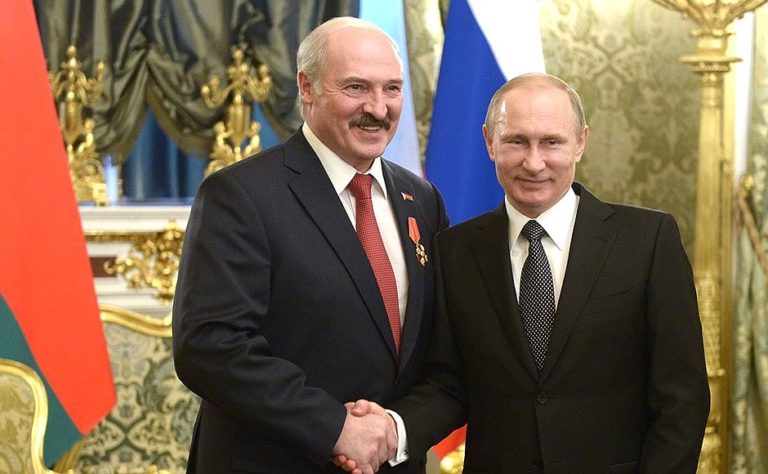
Increased attention to Belarusian language and culture has not done anything to lessen the still increasing economic dependency on Russia. On Sept. 14, 2020, a meeting in Sochi between Putin and Lukashenko was reported in which Putin pledged a 1.5 billion loan to Lukashenko. However, Reuters reported that the loan will not be new money but rather the refinancing of Belarus’s existing debt to Russia. Dermendzhiev, too, questions how much of this money can be used to deal with COVID-19 and new reforms.
What happens next for Lukashenko will be influenced by Russia’s response. It is Dermendzhiev’s opinion that Russia will not show strong explicit support for Lukashenko, such as military involvement. As reasons why Russia may not be keen to fully back Lukashenko, he points to Russia’s current involvement and spending in Syria and the recent developments regarding Alexei Navalny — opposition figure and anti-corruption activist who was recently discharged from a Berlin hospital for Novichok nerve agent poisoning.
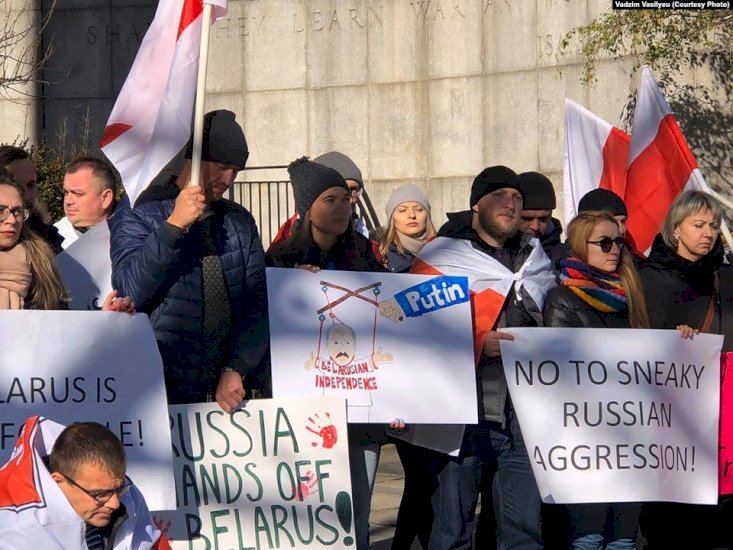
However, Dermendzhiev acknowledges that Russia is likely seeing Lukashenko’s vulnerable position as an opportunity. Whilst Lukashenko is in power, it is a certainty that he will be forced to look more to the east than the west for support, deepening Belarus’s dependence on Russia. This explains why they have shown Lukashenko some support — with the loan offer and the recognition of Lukashenko’s election. This support comes with a price, of course, which Dermendzhiev believes will result in Belarus further losing sovereignty. Lukashenko will likely be forced to make concessions on some of the factors discussed in the past year. Dermendzhiev points to intensified military training and a Russian airbase in Belarus as examples of these factors.
Belarus and China
With a known vested interest in Belarus, China has shown continued support, congratulating Lukashenko on his re-election.
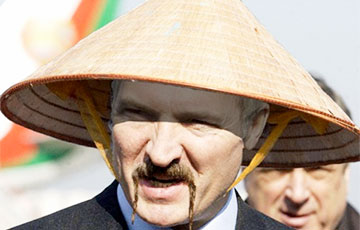
In addition to China’s recent investments in Belarus as part of the Belt and Road Initiative (BRI), it was reported that the Chinese Development Bank had provided 100 million euros ($110.9 million) to the Belarusbank, while the Export-Import Bank of China had agreed to supply 65.7 million euros to Belarusian Railway.
Dermendzhiev suggests the possibility that China may continue to show tacit support to Lukashenko if he is interested in maintaining the status quo strategic point of entry to Belarus.
China is also more likely to be considerate of Moscow’s interests in Belarus as China and Russia have strengthened their relations in recent years and are reported as having largely shared interests.
EU Response — Sanctions
The political sticks the EU could use to incentivise Lukashenko are lacking in comparison to Russia and China. After all, Belarus is not a member of the EU or NATO. As such, it has become clear that sanctions are the EU’s only means of exerting pressure on Lukashenko.
The effectiveness of such sanctions, in any case, is questionable, but particularly in Belarus. Expert sources of Dermendzhiev, who are based in Minsk, do not believe that these sanctions will change the behaviour of Belarus.
Related Articles: Why Serbia Is Protesting | The collapse of Democracy in Poland | Elections in Italy: Why They Matter for Europe and the World
Dermendzhiev also points out that Belarus, unlike Ukraine and Russia, is not a country of oligarchs, nor is there mass privatization. Therefore, there will not be the wealthy figures exerting their influence on the regime because of large monetary loss.
He does concede, however, that sanctions from the EU do send a strong signal of unity against Lukashenko and Belarusian officials.
As it stands, the sanctions consist of EU travel bans and asset freezes on a number of Belarussian officials, but not on Lukashenko — a move which Dermendhiev explains is with the intention of keeping their options open for dialogue on how to solve the political crisis.
The EU is also promoting the OSCE mediates between the regime and the coordination council, which allies of Ms. Tikhanovskaya reportedly set up to help negotiate a peaceful transition of power. The council has called for fresh elections, as well as an investigation into a brutal police crackdown on Mr. Lukashenko’s opponents. The coordination council has had many of its members arrested or exiled. Nobel literature laureate Svetlana Alexievich is one of the leaders still in Belarus and active.
According to the Security and Human Rights Monitor (SHR Monitor) platform, several states are also calling for the Moscow Mechanism to be implemented in case the OSCE’s offer to mediate is not accepted. The Moscow Mechanism “enables limited groups of states to dispatch missions of experts or rapporteurs to investigate cases of human rights violations,” however the SHR monitor also details its limited effects in the past.
French President Emmanuel Macron has also shown strong support for the protestors, and has been quoted in the Journal du Dimanche, saying that, “it’s clear that Lukashenko must go.” The UK Government has declared that it will be imposing sanctions on Belarus starting Dec. 31, 2020.
Essentially, the EU will be thinking about how to gradually and consistently support democracy-building for the long term, Dermendzhiev says, with a view to stability and avoiding border instability.
According to Dermendzhiev’s sources, Lukashenko and the protestors have reached a stalemate, in which the authorities are without an exit strategy while the opposition leaders are largely in exile or have been detained.
This, of course, has left protestors without clear leadership. Dermendzhiev explains that this, therefore, means that there is no one to produce concrete political solutions to help move Belarus out of its political crisis.
As we move further into winter, the dropping temperatures may also affect what happens with the protests. Dermendzhiev’s sources are already speaking of a decline in some areas of Belarus but predict that the protests will continue regardless for some months.
The West will have to make sure the violence decreases gradually and engage the country in more constructive reforms. Free and fair elections look unlikely at this time, Dermendzhiev says, with Lukashenko aware that if another election were to be held, he would certainly lose.
But Russia is the big player in Lukashenko’s future and Moscow is likely biding its time and assessing its options. Keeping Lukashenko in power, for the time being, would seem like the option with the least risk and the most gain for Russia long-term, his vulnerable position forcing him to make Belarus more reliant on Russia.
Editor’s Note: The opinions expressed here by Impakter.com contributors are their own, not those of Impakter.com
In the Featured Photo: Riot police officers in Minsk. Featured Photo Credit: Teachoftime


